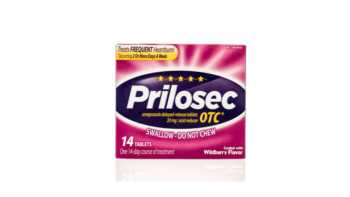
Answer:
To get the best B vitamin complex, you need to focus on two things: getting the specific B vitamins you're most likely to need, and not taking potentially harmful amounts of any them. In ConsumerLab.com's latest B Vitamin Supplements Review, we identify our current Top Pick, which accomplishes these goals, is inexpensive, and has been shown in our independent tests to provide its listed ingredients and properly break apart to release those ingredients.
Although you need a laboratory to know what's truly in a supplement and if it's made properly, you can use the following information to judge B-complexes:
What you absolutely want:
B-12: The B vitamin older people are most likely to need is vitamin B-12 because absorption of B-12 from foods can decrease with age, while B-12 from supplements is easier to absorb. The recommended intake of B-12 is quite small — just 2.4 mcg per day. While B-12 is quite safe and there is no established upper intake limit, people with diabetes or kidney disease should stay under 1,000 mcg or 1 mg per day.
Pyridoxine (B-6): Although it's easy to get enough B-6 from your diet, mild deficiency is common, particularly in the elderly and children. You need 1.3 mg (under age 51), 1.7 mg (men 51+), and 1.5 mg (women 51+). However, there is an Tolerable Upper Intake Level of 100 mg, which some B-complexes exceed and you should avoid.
What to watch out for:
Other B vitamins you should get from a B-complex but have upper limits are:
Folate (B-9): You need 400 mcg daily. The upper limit is 1,000 mcg, but be aware that synthetic forms count as 170% of the listed amount. This means that a supplement with more than 588 mcg of folic acid or methylfolate, exceeds the tolerable daily intake limit. In addition, most Americans and Canadians get enough folate from their diet because of fortification of enriched flour with folic acid. Stick with a product that provides no more than 400 mcg from folic acid or other synthetic folate.
Niacin (B-3): You need 16 mg (men) or 14 mg (women): Many B-complexes exceed the Tolerable Upper Intake Level which is 35 mg.
Other B-vitamins:
It is rare to be deficient in the other B vitamins if you are relatively well-nourished, but it's fine to get the daily requirements from a B-complex and no upper limits have been established for these. They, and their daily requirements, are: thiamin (B1): 1.2 mg (men) and 1.1 mg (women); riboflavin (B-2): 1.3 mg (men), 1.1 mg (women); pantothenic acid (B-5): 5 mg, and biotin (B-7): 30 mcg.
More information about each of these B vitamins, their different forms, what they do, and potential concerns are found in the B Vitamin Supplements Review.
Join today to unlock all member benefits including full access to all CL Answers and over 1,400 reviews.
Join NowAlready a member? Sign In Here.
Join now at www.consumerlab.com/join/












Submit your comment
This feature is restricted to active members.
Join now to add comments and get all member benefits, including over 1,400 reviews.
Join NowAlready a member? Sign in here.